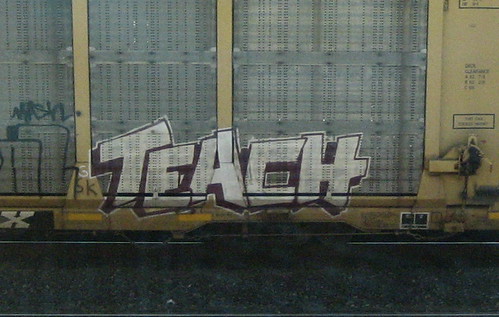Faculty Research: Designing History's Future with Karl Hagstrom Miller
 It should come as no surprise that we at AMS :: ATX headquarters love projects that delve into the digital world. One of our faculty members, Dr. Karl Hagstrom Miller, is working on the ever-fascinating Course Transformation Project with the UT History Department to "reimagin[e] what it means to teach and learn history." The project includes a blog with content from Karl's graduate seminar in the department, "Designing History's Future," a compendium of online resources about history pedagogy and research, an extensive bibliography, and a series of Friday afternoon workshops.Here's an excerpt from a write-up about the endeavor from Karl - the full post can be found here:
It should come as no surprise that we at AMS :: ATX headquarters love projects that delve into the digital world. One of our faculty members, Dr. Karl Hagstrom Miller, is working on the ever-fascinating Course Transformation Project with the UT History Department to "reimagin[e] what it means to teach and learn history." The project includes a blog with content from Karl's graduate seminar in the department, "Designing History's Future," a compendium of online resources about history pedagogy and research, an extensive bibliography, and a series of Friday afternoon workshops.Here's an excerpt from a write-up about the endeavor from Karl - the full post can be found here:
Penne Restad and I, in consultation with other history faculty, developed the basic plan for the project. But we have no idea how it is going to turn out. That is by design.One of our major goals is to re-imagine the way we teach our US history survey courses. “United States, 1492-1865” and “United States Since 1865” are the backbone of the UT history department. These two courses enroll about 4,500 students annually. That’s a lot of students. It’s also a lot of faculty and a lot of graduate teaching assistants. Our goal is to develop ways for these students to learn more and learn better. For us, that means moving away from the lecture format towards more active and collaborative learning, designing a course in which students engage in doing history rather than watching it done by others. We don’t know what that is going to look like yet. We’ve got a load of ideas, but we will be developing, refining, and implementing them over the coming year. Keep posted.We also hope to foster a broader conversation about teaching and learning history among our faculty, our students, and anyone else who is interested. The issues facing those who take and teach the US survey are far from unique. They resonate across the department and the university. Many, of course, resonate across the field of higher education. From student engagement and success to the paradoxes of systematic assessment in the humanities, from debates about active and situated learning to the existential challenges and exciting opportunities offered by digital technology, from graduate funding and placement to faculty research and retention: we often find ourselves working on contested and congested terrain. It is not always clear which way to travel or whether the paths we forge today will still be viable routes tomorrow. We do think that practicing teachers are in the best position to work out solutions to these complex issues while preserving and improving the quality of student learning. We hope that the history CTP will provide faculty and graduate students opportunities to debate these issues and collaborate on new designs for teaching history well into the future.
For more about American Studies at UT, subscribe to our newsletter here.